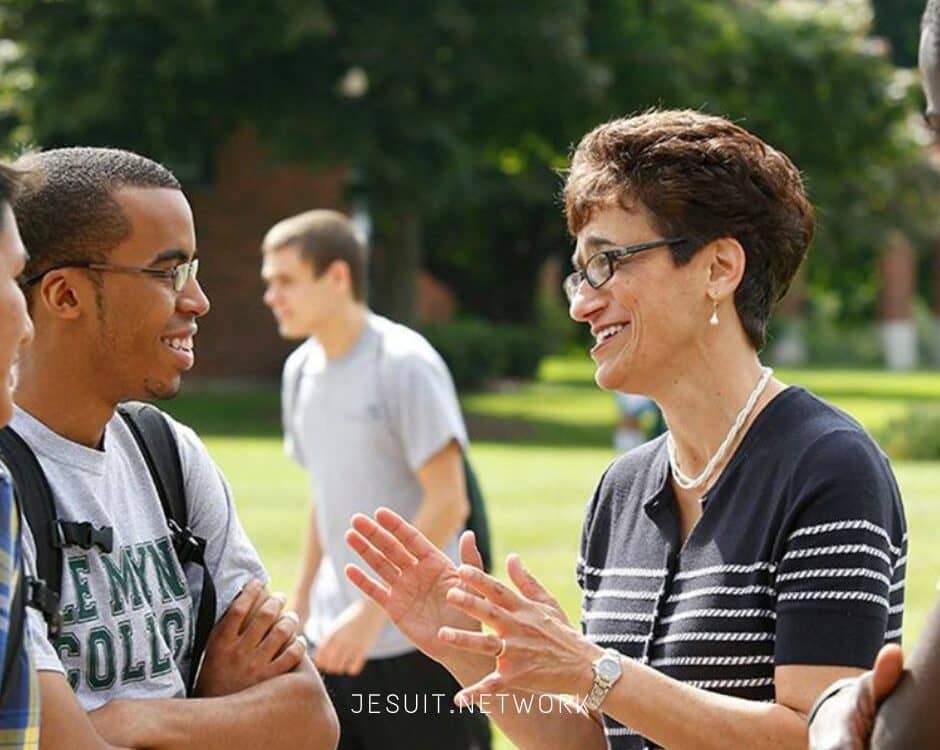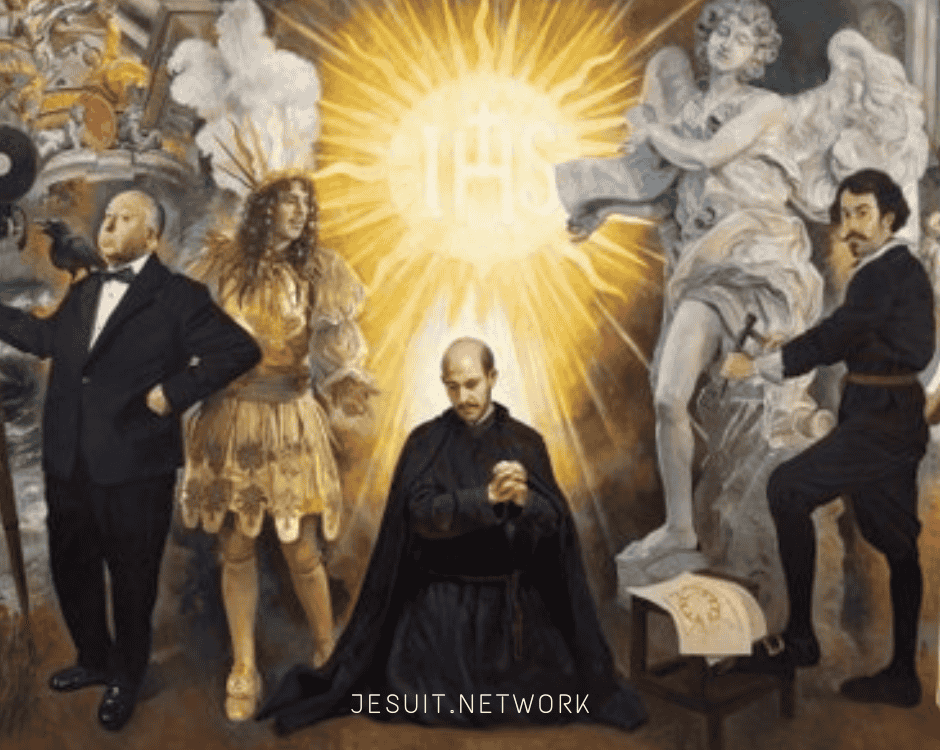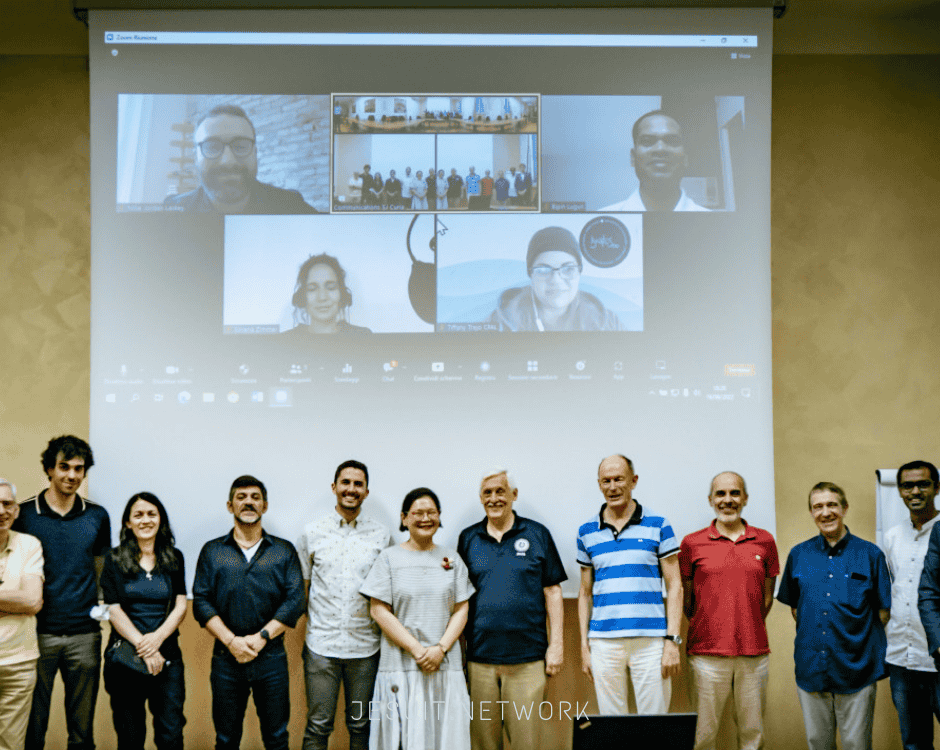Este sitio web utiliza cookies para que podamos ofrecerle la mejor experiencia de usuario posible. La información sobre cookies se almacena en su navegador y realiza funciones como reconocerle cuando vuelve a nuestro sitio web y ayudar a nuestro equipo a comprender qué secciones del sitio web le resultan más interesantes y útiles.
A Historic Moment with Father General in North America
Fr. Arturo Sosa, SJ, Superior General of the Society of Jesus, took a 12-day visit to Canada in spring 2018, which included a meeting with the Jesuit provincials of Canada and the United States. In this reflection, Fr. Timothy Kesicki, SJ, president of the Jesuit Conference of Canada and the United States, discusses some of the highlights of the provincials’ time with Father General.
May 26, 2018 — “Saint Ignatius of Loyola had a strong devotion to la Nostra Signora Della Strada (Our Lady of the Way); he prayed to her not only when he was walking in different countries, but also when he was in his office in Rome.” These were the opening words of Father General Sosa’s homily to the provincials at their recent meeting in Montreal of the Jesuit Conference of Canada and the United States, which represents all Jesuits in those countries. As the 31st successor to Saint Ignatius, Fr. Sosa invited the provincials to reflect on how Our Lady has been helping us to follow her Son. This was Fr. Sosa’s first visit to our Conference since being elected Superior General in October 2016, and the provincials welcomed his spiritual and fraternal wisdom during these important days together.
There are six Jesuit Conferences in the world and Fr. General meets with three of them a year. His participation in our Spring meeting comes at an important time in our Conference as we continue to implement the strategic realignment of provinces. We met in Canada, which will form one province from two this summer. During his time with us, Fr. Sosa also visited Jesuit houses and ministries in Montreal.
Fr. General joined most of our sessions and held individual conferences with each of the provincials. The visit gave him an opportunity to engage in our important discussions as well as express his vision for the Society of Jesus today. In his remarks to us, he commented on our ongoing discernment of Universal Apostolic Preferences for the Society. He reminded us that we are looking for apostolic orientations which will bind the many Jesuit ministries around the world in light of the needs of the world.
These Apostolic Preferences will help Jesuits and their partners to make important choices for ministry in the next 10 years. He then directed us to reflect on the pressing issues now facing our world: a crisis in human rights; religious and ideological fundamentalism; the challenge of migration; and the ongoing inequalities between nations. He reminded us that the mission of the Society is its service to the Church and the Holy Father whom we vow to serve. He also commented on vocation promotion, emphasizing the need for Jesuit brothers along with candidates for priesthood.
The agenda for the provincials’ meeting focused on three primary themes: reconciliation, the apostolate of higher education and the future of Jesuit formation. For over a year the Society in the United States has been engaged in a process for dialogue with descendants of Jesuit slaveholding. As part of this process, three African-American Jesuits accompanied us in a reflection on racism within our own ranks and in the larger world. This reflection flowed from the recent Jesuit General Congregation’s call for reconciliation with humanity and with God. The provincials in the conference are also preparing for a joint meeting with presidents of Jesuit colleges and universities in the fall of 2019. These joint meetings occur every three to five years and focus on the future of Jesuit higher education. This summer there will be an international meeting on Jesuit higher education in Bilbao, Spain, and this will inform our future planning. Finally, we spent some quality time on our review and planning of the intellectual formation of Jesuits.
A parting image for the provincials at the end of the meeting was an image from Fr. Sosa’s homily. Preaching on the chapter nine of Mark’s Gospel, he emphasized the passage, “Everyone will be salted with fire.” He urged us to remember that we are not salted with fire once and forever. This allegory for conversion is a process whereby we need to keep on the fire, he said. “We need to take care of the friendship with the Lord that makes being an apostolic body possible.”





